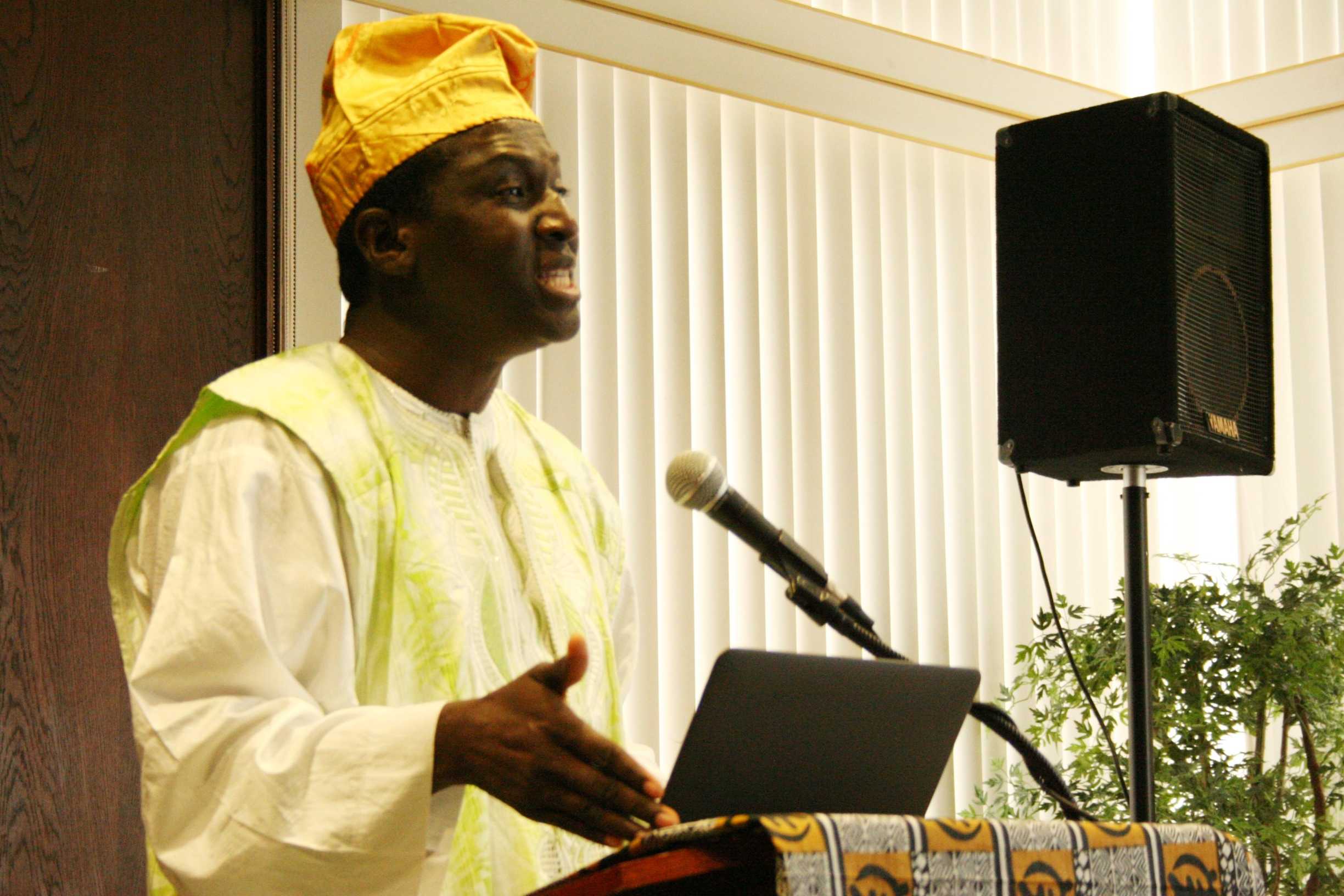A small audience of students and professors gathered in the University Student Union Alamitos Bay Room on Wednesday for a lecture from Arcadia University professor Roland Adjovi, who spoke on the legitimacy of the United Nations’ intervention in Libya and possible motives of the nations involved.
“It is important to hear a different voice than the one everyone is hearing,” said Adjovi, who is also the academic director of the Nyrene Center for Peace Research.
As part of the Africana Studies department’s annual forum on critical issues concerning Africa, Adjovi presented “Engaging Libya: International Legitimacy and National Interests,” an exchange based on his opinion of foreign involvement in Libya and the continuing struggles the nation faces.
The Libyan rebellion, which has seen the almost complete downfall of Moammar Gadhafi’s near-50 year regime , began in February, after police forces shot peaceful protesters. The U.N. initially became involved in March when they authorized a NATO-implemented no-fly-zone over Libya.
Adjovi claimed that the military involvement was illegal. He cited Article 39 of Chapter 7 of Resolution 1973, which stated, before the U.N. could take action, there must be a “threat to the peace, breach of the peace or act of aggression.” None of which, he said, occurred during the initial stage of the Libyan uprising.
Adjovi said the U.N. is prohibited from using military force in international relations except for self-defense.
Adjovi said not all permanent members of the U.N. Security Council agreed to use force — a situation that should have prevented any nation from engaging in military activity.
“There was no qualification for use of military force,” Adjovi said.
He argued that, after initiating military intervention in Libya, NATO forces have done nothing to protect its people, an issue of humanitarian concern.
Beyond the U.N., Adjovi was critical of the Libyan National Transitional Council (NTC), Libya’s tentative successor government, claiming they were, “the political leaders of Libya who worked with Gadhafi in the past.”
“The NTC is built on the appearance of domestic leadership they don’t have,” Adjovi said.
He said they formed suddenly and did not represent the will of the rebel forces. Adjovi then presented what he believed to be other motives for foreign intervention in Libya: Water and oil.
Adjovi suggested that the main reason for U.N. intervention was to steady access to Libyan oil and the vast reserve of fresh-water within its borders. He pointed to similarly violent uprisings in Yemen and Bahrain that saw no military involvement — nations that, according to Adjovi, have no resources that Western nations value.
He also noted an African bank that Gadhafi was looking to form that would end the International Monetary Fund’s financial hold on Africa, though he didn’t draw a direct correlation between it and U.N. involvement.
“The political leadership is, unfortunately, unable to help Africans move forward,” he said. “I believe in the people of Africa taking the future in their hands.”
Disclaimer: The Daily 49er is not responsible for Postings made on www.daily49er.wpengine.com. Persons commenting are solely responsible for Postings made on this website. Persons commenting agree to the Terms of Use of the website. If Postings do not abide by the Rules of Conduct or Posting Regulations as listed in the Postings Policy, the Daily 49er has all rights to delete Postings as it deems necessary. The Daily 49er strongly advises individuals to not abuse their First Amendment rights, and to avoid language suggestive of hate speech. This site also encourages users to make Postings relevant to the article or other Postings.




